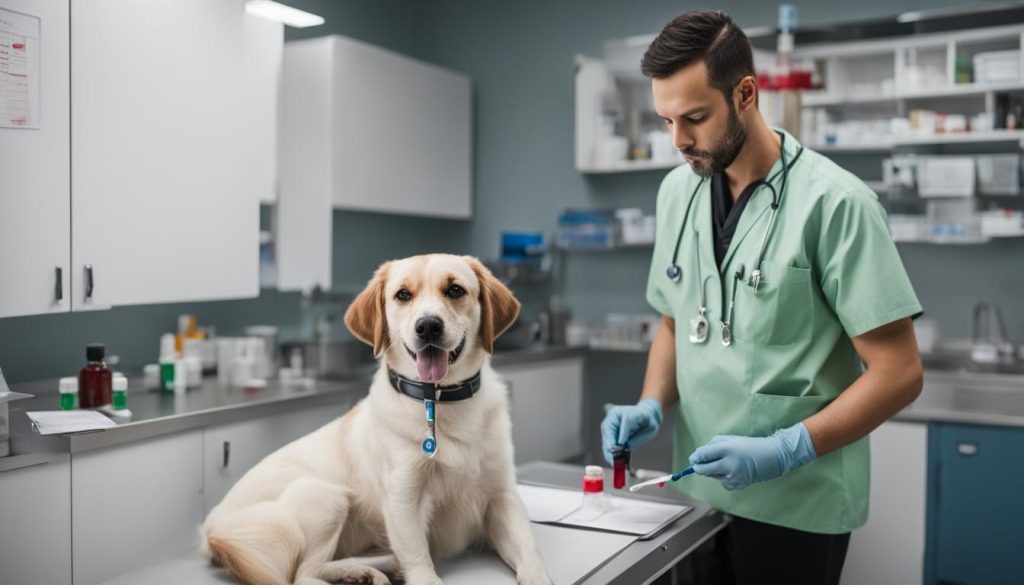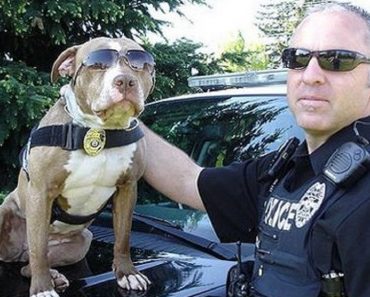As a dog owner, it’s important to be aware of potential health issues that may affect your furry friend. One common condition that dogs can experience is hypothyroidism, also known as thyroid issues in dogs. Canine hypothyroidism occurs when the thyroid gland fails to produce enough thyroid hormones, leading to various symptoms and complications.
Canine hypothyroidism can be challenging to diagnose due to the variability of clinical signs and the presence of other causes of low thyroid hormone levels. The primary cause of hypothyroidism is the failure of the thyroid gland itself, usually due to inflammation or degeneration. If left untreated, hypothyroidism can lead to lethargy, weight gain, dermatological issues, and potentially severe complications.
To accurately diagnose hypothyroidism in dogs, veterinarians rely on a combination of clinical signs and diagnostic tests. These tests include thyroid hormone testing, which should be interpreted alongside the dog’s symptoms and other relevant factors. Once diagnosed, the treatment for hypothyroidism typically involves lifelong medication with synthetic thyroid hormones.
Key Takeaways:
- Canine hypothyroidism is a common disorder that affects the thyroid gland in dogs.
- Symptoms of hypothyroidism in dogs include lethargy, weight gain, and dermatological issues.
- Diagnosis involves a combination of clinical signs and thyroid hormone testing.
- Treatment for hypothyroidism usually consists of lifelong medication with synthetic thyroid hormones.
- Regular veterinary care and monitoring are essential for dogs with hypothyroidism.
Causes and Symptoms of Canine Hypothyroidism
Hypothyroidism in dogs can have various causes, including autoimmune inflammation of the thyroid gland (lymphocytic thyroiditis) or degeneration of the thyroid gland (idiopathic thyroid atrophy). Certain breeds, such as Golden Retrievers and Doberman Pinschers, are more prone to developing hypothyroidism.
The symptoms of hypothyroidism can vary and may not always be obvious. Common signs include lethargy, weight gain, hair loss (alopecia), skin issues like hyperpigmentation and pyoderma, as well as potential complications affecting the nervous and cardiovascular systems.
It’s important to note that these symptoms can also be caused by other conditions. Therefore, a comprehensive diagnostic evaluation is necessary to confirm a diagnosis of hypothyroidism and rule out other potential causes.
Diagnosis of Hypothyroidism in Dogs
The diagnosis of hypothyroidism in dogs requires a comprehensive and multi-step approach to ensure accurate and reliable results. While the initial screening test often involves measuring the levels of total T4 (thyroxine) in the blood, it is important to note that low T4 levels alone are not conclusive evidence of hypothyroidism. Several other factors can affect T4 levels in euthyroid dogs, which necessitates further tests to confirm the diagnosis.
The diagnostic approach for hypothyroidism in dogs typically involves:
- Measuring free T4 levels: This test assesses the levels of unbound (free) T4, which provides a more accurate representation of the biologically active thyroid hormone available in the body. It helps to evaluate the thyroid gland’s function more precisely.
- Thyroid-stimulating hormone (TSH) measurement: The measurement of TSH levels in the blood can provide valuable insights into the functioning of the thyroid gland. Elevated TSH levels can indicate an underactive thyroid gland.
- Thyroiditis antibody tests: These tests help identify the presence of immune-mediated inflammation of the thyroid gland, which can be a contributing factor to hypothyroidism.
Factors to consider:
When diagnosing hypothyroidism in dogs, it is crucial to consider their clinical presentation, breed predisposition, and any other factors that could potentially impact the accuracy of the test results. Each dog’s diagnostic journey should be tailored to their specific needs and circumstances to ensure an accurate diagnosis and appropriate treatment plan.

Treatment and Management of Canine Hypothyroidism
When it comes to treating canine hypothyroidism, the key is lifelong medication with synthetic thyroid hormones. One commonly prescribed medication for dogs with this condition is levothyroxine. The dosage of the medication varies based on the individual dog’s needs and how they respond to treatment. It’s important to note that regular monitoring of thyroid hormone levels is crucial to ensure the medication dosage remains appropriate for the dog’s specific requirements.
Once treatment is initiated, it’s typically necessary for dogs with hypothyroidism to continue taking medication for the rest of their lives. This ensures their thyroid hormone levels are maintained within the optimal range, minimizing any potential complications or relapses.
Regular veterinary check-ups and monitoring of clinical signs are vital aspects of effectively managing hypothyroidism in dogs. These check-ups allow veterinarians to assess the dog’s overall health, evaluate any changes in symptoms, and adjust the medication dosage if necessary. By closely monitoring the dog’s condition, veterinarians can ensure that the treatment plan remains appropriate and effective.
Conclusion
After gaining a comprehensive understanding of canine hypothyroidism, it is clear that this condition should not be taken lightly. Thyroid issues in dogs can have a significant impact on their overall health and well-being. Therefore, it is crucial for dog owners to educate themselves about the causes, symptoms, and diagnostic process for hypothyroidism.
Regular veterinary care is essential for dogs with hypothyroidism. Monitoring the thyroid hormone levels is crucial to ensure accurate diagnosis and effective management. With proper diagnosis and management, dogs with hypothyroidism can lead happy and healthy lives.
If you suspect that your dog may be suffering from thyroid issues, do not hesitate to consult with your veterinarian. They will provide a thorough evaluation and offer guidance on the appropriate diagnostic tests and treatment options available. Remember, early detection and timely intervention can make a significant difference in your dog’s quality of life.
FAQ
What is canine hypothyroidism?
Canine hypothyroidism is a disorder in dogs where the thyroid gland fails to produce enough thyroid hormones.
What are the causes and symptoms of canine hypothyroidism?
Canine hypothyroidism can be caused by autoimmune inflammation of the thyroid gland or degeneration of the thyroid gland. Common symptoms include lethargy, weight gain, hair loss, and skin issues.
How is hypothyroidism in dogs diagnosed?
The diagnosis of hypothyroidism in dogs involves a multi-step approach, including thyroid hormone testing and considering the dog’s clinical signs, breed predisposition, and other factors that could affect test results.
What is the treatment for canine hypothyroidism?
Treatment for hypothyroidism in dogs typically involves lifelong medication with synthetic thyroid hormones, such as levothyroxine. Regular monitoring of thyroid hormone levels is necessary to ensure the medication dosage is appropriate.
Can dogs with hypothyroidism lead normal lives?
With proper diagnosis and management, dogs with hypothyroidism can lead happy and healthy lives. Regular veterinary care, including monitoring of thyroid hormone levels, is essential for their well-being.






